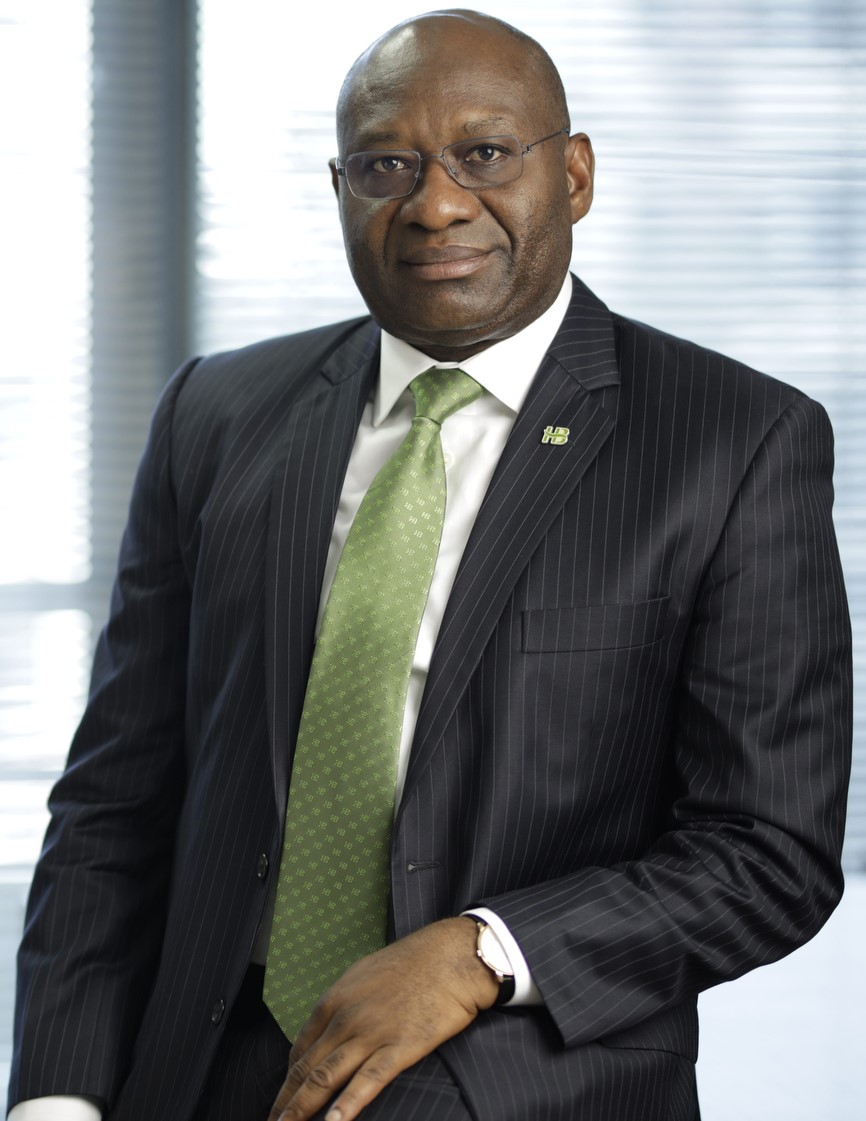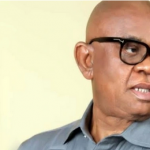...To get all news updates, Join our WhatsApp Group (Click Here)
Also Join our WhatsApp Channel (Click Here)
In today’s world, making financial services accessible is fast becoming a key area of concern to policymakers for the well-known reason that it has far reaching economic implications. To this end, financial inclusion has assumed a greater level of importance due to its perceived relevance as catalyst for economic growth since it is critical for attaining inclusive growth in an economy.
In 2012, Nigeria took major steps in its journey by launching the National Financial Inclusion Strategy (NFIS). The main goal of the NFIS is to ensure that 80per cent of Nigerian adults are financially included by 2020. Before this, the formal use of financial services by the adult population stood at 36.3per cent in 2010. To achieve the 2020 goal, the Central Bank of Nigeria (CBN) introduced strategies to spike innovation in the financial services sector in Nigeria and by 2017, one amongst the achievements was that the CBN had given over 20 licenses to mobile money operators, which has currently grown to 21.
According to 2018 data from Enhancing Financial Innovation and Access (EFInA), 38.1million of Nigeria’s 106million (18years and above) adults or 36 percent of Nigerians remain completely financially excluded.
In a recent survey by Augusto & Co on Consumer Digital Banking, only 34per cent of the respondents said they had experienced the service of digital banks. Only 17per cent of respondents above the age of 55 are aware of their services, while for people aged 41-54, the awareness rate stood at 31per cent. This spells the need to deepen the financial inclusion drive if Nigeria is to attain the NFIS target and accelerated economic growth.
The apex bank may have missed the 2020 target of 80 percent for financial inclusion, but it stands a better chance of meeting the target of 95per cent by 2024, as industry players have argued that to achieve the NFIS target for inclusive economic growth, the financial sector must strongly leverage technology (mobile and digital channels) to promote financial inclusion and enhance access to financial services for the unbanked and underserved segments of the population.
One of the financial institutions that has continued to leverage on technology to revitalize the industry via deploying its huge resources and vast networks to deepen financial inclusion in the country for inclusive economic growth is Heritage Bank Plc, Nigeria’s most innovative banking service provider.
The MD/CEO of Heritage Bank, Ifie Sekibo, affirmed that banks cannot push financial inclusion unless they also push secured technology inclusion.
According to him, Heritage Bank has continued to entrench financial inclusion across board via creating access to accounts and other financial products, savings, mobile money systems and payment systems that provide opportunities for financially excluded Nigerians and Micro, Small and Medium Enterprises.
Introducing HB API Sandbox & Banking as a service via One Pipe
The Bank launched an API Sandbox to accelerate the ideas of technology entrepreneurs to build innovative and commercially viable products that were birthed through HB LAB. This platform provides a suite of financial and non-financialAPIs targeted to meet the needs of FinTech, Tech SMEs, and Communities. Our APIs grants Tech Companies, third-party developers, and non-Fintech companies access to multiple payments and financial services required by their customers.
Following the launch of HB’s API Sandbox, the Bank partnered with API aggregator Companies to extend the Bank’s API services to a wider audience, layering their value-added services to deliver our BaaS platform. Banking as a Service (BaaS/Open Banking) is an end-to-end business process that allows FinTech and other third-party service providers to offer core financial services to their customers by integrating with the Bank via our readily available APIs. This is a billed service that also provides relevant data insight required to pursue aggressive retail accounts acquisition by leveraging the aggregator robust retail prospect pipeline.
Redefining digital banking space with ‘Octiplus’
Sekibo promised that his bank would continue to drive financial inclusion through a robust, innovative, and advanced digital banking solution, ‘Octiplus’ which it recently launched.
Octiplus is a bank-agnostic, all-in-one digital banking application, which grants users access to a bouquet of financial, lifestyle and social networking features with the added convenience of converging card-based payments within one application irrespective of the issuing Nigerian bank. Ifie Sekibo stated that, “with Octiplus, we are redefining the concept of digital banking for the discerning mobile user, as the app is equipped with several exciting features that reiterate the bank’s commitment to expand its digital architecture and modernize its interactions with the banking public, irrespective of your preferred financial institution.”
Octiplus promises an intelligent Omni-channel experience which augments the usual transactional features including bills payment, funds transfer and airtime recharge with its unique ability to facilitate person to person/group interactions which encourages small businesses and a thriving side hustle for young professionals. The App is now available for download on the Google and iOS App Stores.
Catching them young with HB BUD Account
HB Bud account is a savings account for children and the younger demographic aimed at introducing financial literacy and inclusion. The account can be opened in trust for a child by the parent/guardian who will be the primary account holder with the responsibility of running this account until their child attains adulthood and can solely operate their own accounts or possibly move to other age-appropriate products. This product was initially launched in 2014 as a unique proposition to cater mostly to the educational needs of children and young adults who are preparing and saving up for further education and, as well, deepen brand visibility and increase the bank’s market share. However, some operational exigencies and regulatory framework have necessitated the modification and adjustment of this product to serve the customers optimally. Children and teens from 0 to 18yrs are the target market.
The features are unique as outlined: Access to cash backed loan by parent/guardian/sponsor for school fees/education loan. You can access up to 70per cent of your balance held with the Bank as cash backed loan. Thecustomer must have run the BUD account for a minimum of 6 months to access the cash backed loan. Ease of saving through standing order instructions. Access to exclusive events. Free participation in the BUD MINI career mentoring and coaching sessions once a year. Opportunity to act as a Heritage Bank Executive Committee member for one day.
Catering for the unbanked via HB Starter Product
This is the banks flagship CBN KYC Tier 1 savings account to cater for the unbanked. It is a level 1 entry into savings account category in Nigeria, in which an individual can open without having the mandatory requirements/documents to open a standard or regular account in Nigeria. This is one way of ensuring that all citizens of Nigeria are financially included since the account can be opened with or without a smart phone at the bank or online. In essence, this type of savings account doesn’t require any utility bills, or even an ID to open.
Most people who fall under this category usually do not see the need to open an account because they find it easier to save whatever money they have in their houses. This category of people wants to avoid bulky manual account opening process and have a better time management. This product is very precise and requires minimum account opening documentation, also it can be done at the comfort of one’s home. Customers can in addition be assisted by the Bank’s relationship managers and sales teams. Also, customers can get on the bank’s website to initiate a new account opening process from start and receive the account number at the end of the process.
Product targeted at individuals across all market segments
This is known as HB Individual Current Account Product, which is a checking account for all individuals across market segments above the age of 18years. This account has been made seamless with unique features for individuals’ access to loan products, minimum balance of N0.00, No COT on all transaction, account opening balance N5, 000 and access to clearing check book.
Customization of payment gateway on HB CheckOut and Virtual Accounts
Heritage CheckOut is a fully integrated payment processing platform with infrastructure for digital payments across Africa. Olusola Longe-Okenimkpe, Divisional Head, E-Business & Collections disclosed that the platform provides an underlying technology platform that allows businesses to receive and issue payments from anywhere in the world, with robust inbuilt fraud management, compliance, and security applications.
She also defined Virtual Accounts as series of off-balance accounts whose total balance mirrors the balance in pool account. According to Olusola, pool account is linked to all the virtual accounts and the balance in the pool account mirrors the total balance in the virtual accounts.
Opportunities for financially excluded with HB Business Account
The Heritage Bank Business Account is a cost-effective current account that provides flexible, affordable, and transparent pricing grid based on debit monthly turnover covenant. The product is targeted at all Micro and Small Enterprises of SME and Retail segments.
Ensuring seamless transaction using HB transfer code
The transfer code *745# of Heritage bank guarantees seamless usages and reduces the stress of going to the branch of Heritage bank to make payment. Just like other banks, you can use Heritage bank mobile banking code which is *745# to check your account balance, transfer money to Heritage bank or other banks, pay for utility bills and cable TV subscription, pay for church’s services everywhere you are using your mobile phone.
Capturing educational sector via Alumni Banking service, Acada Portal Solution
To further capture individuals in educational sector into the financial inclusion space, Heritage Bank unveiled the Alumni Banking Service and Acada Portal Solution which are internet-based solutions that seamlessly integrate school’sportal and Alumni platforms that benefit the different stakeholders and complement efforts in attaining the best global practices in school management. Alumni Banking service is an educational provision by Heritage Bank that seeks to utilize and track, engage, endow, and invest a model to help secondary and tertiary educational institutions create modern alumni systems that contribute to their financial stability just like great alumni do in the best global schools.
Inclusion of creative industry, e-sport gaming on HB YNSPYRE Account
YNSPYRE Account is a product targeted specifically at the creative economy populated by not only youths in video and film, and music. It goes much more than that as it involves people in technology, the creative industry and gaming as part of the creative industry.
Addressing the press about the initiative in gaming as a creative endeavour, Dike Dimiri, Heritage Bank Regional Executive, Lagos, and South-West explained that the involvement of the bank is to identify income-earning opportunities for some people in the economy.
According to him, “HB has designed a product that identifies and finds a mechanism that guides Nigerians in gaming or e-sports. The bank is set to revolutionize e-sports by bringing it to an acceptable level attained by football, lawn tennis and other crowd pulling games.”
Heritage Bank is fast changing the narratives of the banking landscape through the adoption of more secured technology (product and channels) for seamless services that guarantee the larger part of the population is involved in economic activities as well asbeing financially included.
For this to be effective, Sekibo affirmed that the population must access financial services and products which ensure that households and businesses irrespective of income levels have access to and can effectively use the appropriate financial facilities they need to improve their lives and further their savings and investments.
You can get every of our news as soon as they drop on WhatsApp ...To get all news updates, Join our WhatsApp Group (Click Here)
Also Join our WhatsApp Channel (Click Here)

















